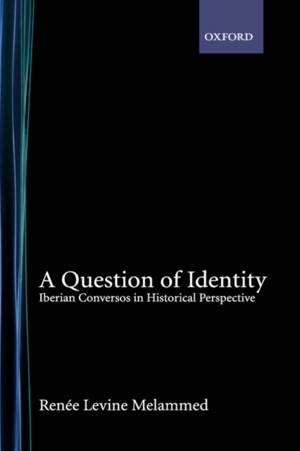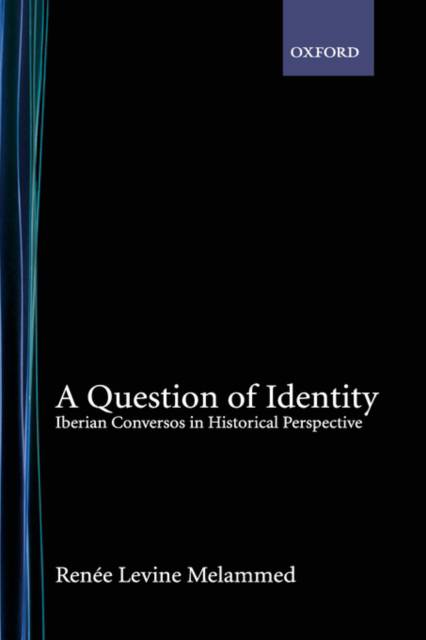
- Retrait gratuit dans votre magasin Club
- 7.000.000 titres dans notre catalogue
- Payer en toute sécurité
- Toujours un magasin près de chez vous
- Retrait gratuit dans votre magasin Club
- 7.000.0000 titres dans notre catalogue
- Payer en toute sécurité
- Toujours un magasin près de chez vous
A Question of Identity
Iberian Conversos in Historical Perspective
Renee Levine Melammed, Rene Levine Melammed
Livre relié | Anglais
209,45 €
+ 418 points
Description
In 1391 many of the Jews of Spain were forced to convert to Christianity, creating a new group whose members would be continually seeking a niche for themselves in society. The question of identity was to play a central role in the lives of these and later converts whether of Spanish or Portuguese heritage, for they could not return to Judaism as long as they remained on the Peninsula, and their place in the Christian world would never be secure. This book considers the history of the Iberian conversos-both those who remained in Spain and Portugal and those who emigrated. Wherever they resided the question of identity was inescapable. The exile who chose France or England, where Jews could not legally reside, was faced with different considerations and options than the converso who chose Holland, a newly formed Protestant country where Jews had not previously resided. Choosing Italy entailed a completely different set of options and dilemmas. Renée Levine Melammed compares and contrasts the lives of the New Christians of the Iberian Peninsula with those of these countries and the development of their identity and sense of ethnic solidarity with "those of the Nation." Exploring the knotty problem of identity she examines a great variety of individual choices and behaviors. Some conversos tried to be sincere Catholics and were not allowed to do so. Others tried but failed either theologically or culturally. While many eventually opted to form Jewish communities outside the Peninsula, others were unable to make a total commitment to Judaism and became "cultural commuters" who could and did move back and forth between two worlds whereas others had "fuzzy" or attenuated Jewish identities. In addition, the encounter with modernity by the descendants of conversos is examined in three communities, Majorca, Belmonte (Portugal) and the Southwestern United States, revealing that even today the question of identity is still a pressing issue. Offering the only broad historical survey of this fascinating and complex group of migrants, this book will appeal to a wide range of academic and general readers.
Spécifications
Parties prenantes
- Auteur(s) :
- Editeur:
Contenu
- Nombre de pages :
- 252
- Langue:
- Anglais
Caractéristiques
- EAN:
- 9780195170719
- Date de parution :
- 14-10-04
- Format:
- Livre relié
- Format numérique:
- Genaaid
- Dimensions :
- 163 mm x 241 mm
- Poids :
- 512 g

Les avis
Nous publions uniquement les avis qui respectent les conditions requises. Consultez nos conditions pour les avis.






